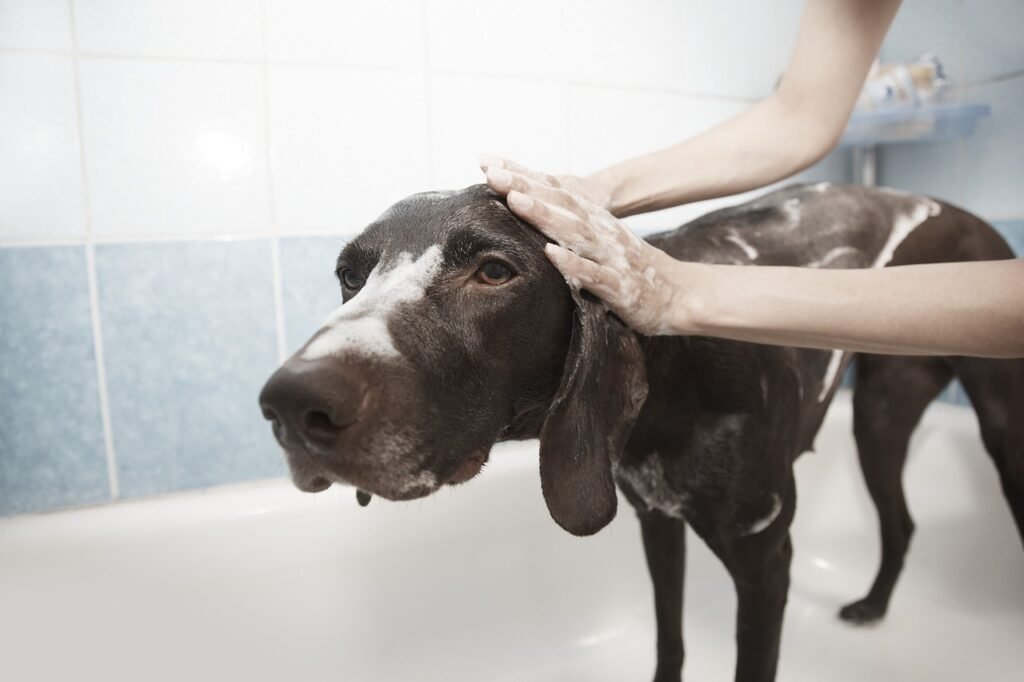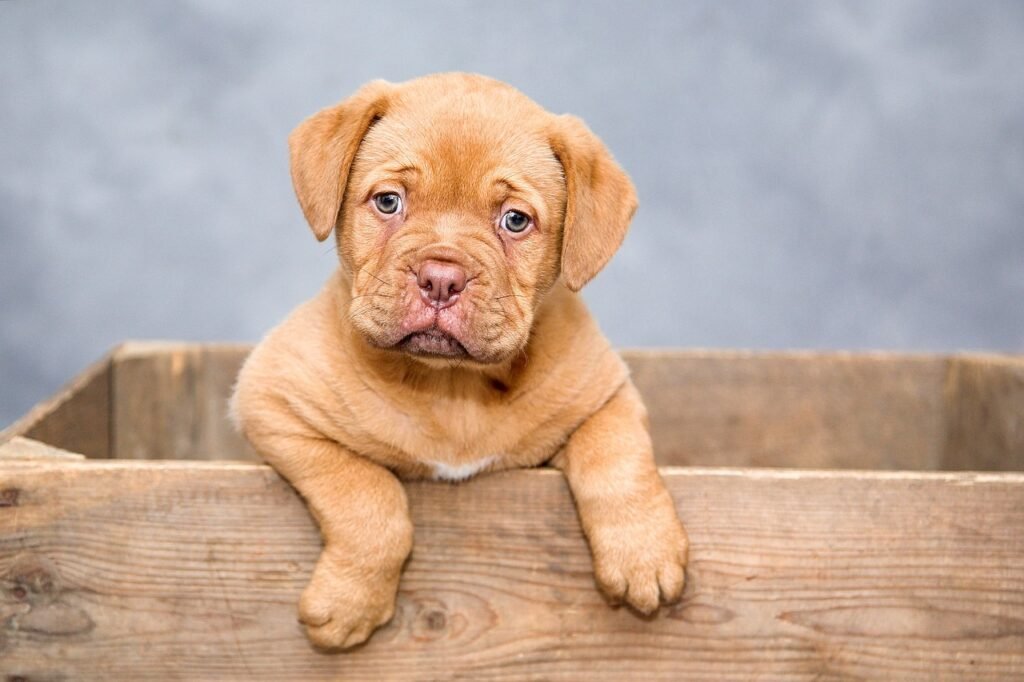In this article, we will discuss the essential steps for the seasonal care of your dog’s coat. Taking care of your furry friend’s coat is important to ensure their comfort and health throughout the changing seasons. From grooming to nutrition, we will cover all the necessary steps to keep your dog’s coat healthy and shiny no matter the time of year. By following these tips, you can ensure that your canine companion stays happy and looking their best. Have you ever wondered how to properly care for your dog’s coat throughout the changing seasons? Well, you’ve come to the right place! In this article, we will explore the essential steps for seasonal care and maintenance of your furry friend’s coat. From grooming tips to product recommendations, we’ve got you covered. So grab a snack, cuddle up with your pup, and let’s dive in!

This image is property of pixabay.com.
Understanding Your Dog’s Coat Type
Before we get into the nitty-gritty of seasonal care for your dog’s coat, it’s important to understand the different coat types that dogs have. Knowing your dog’s coat type will help you determine the best grooming and maintenance routine for them.
Short Coat
Dogs with short coats have fur that is close to their body and typically easy to maintain. Breeds like Dalmatians, Dobermans, and Boxers have short coats that require minimal grooming.
Long Coat
On the other hand, dogs with long coats have fur that is, well, long! Breeds like Golden Retrievers, Afghan Hounds, and Maltese have long coats that require regular brushing and grooming to prevent matting and tangles.
Double Coat
Many breeds, such as Huskies, German Shepherds, and Shetland Sheepdogs, have double coats consisting of a soft undercoat and a coarse topcoat. Double-coated breeds shed heavily, especially during seasonal changes, and require consistent grooming to manage shedding.
Grooming Tools and Supplies
Now that you’ve identified your dog’s coat type, it’s time to gather the necessary grooming tools and supplies to keep their coat healthy and happy. Here are some essential grooming tools for seasonal care:
Brushes
Investing in a good quality brush is key to maintaining your dog’s coat. The type of brush you need will depend on your dog’s coat type:
| Coat Type | Recommended Brush |
|---|---|
| Short Coat | Bristle brush or rubber curry comb |
| Long Coat | Slicker brush or de-shedding tool |
| Double Coat | Undercoat rake or slicker brush |
Shampoos and Conditioners
Using a high-quality dog shampoo and conditioner is essential for keeping your dog’s coat clean and healthy. Choose a mild, hypoallergenic formula that is suitable for your dog’s skin type:
| Skin Type | Recommended Shampoo |
|---|---|
| Dry Skin | Moisturizing shampoo with oatmeal or aloe vera |
| Sensitive Skin | Hypoallergenic shampoo with no added fragrances |
| Oily Skin | Clarifying shampoo with tea tree oil or citrus extracts |
Nail Clippers and Styptic Powder
Regular nail trims are an important part of your dog’s grooming routine to prevent overgrowth and discomfort. Make sure to have nail clippers and styptic powder on hand to quickly stop any bleeding if you accidentally cut the quick.

This image is property of pixabay.com.
Seasonal Grooming Tips
Now that you have the necessary tools and supplies, let’s dive into some seasonal grooming tips to keep your dog’s coat looking and feeling its best year-round.
Spring
As the weather warms up and your dog sheds their winter coat, it’s essential to brush them regularly to remove dead fur and prevent matting. Consider booking a professional grooming appointment to give your pup a fresh start for spring.
Summer
In the heat of summer, make sure your dog stays cool and comfortable by keeping their coat clean and free of tangles. Give them a refreshing bath with a hydrating shampoo and provide plenty of shade and water to prevent overheating.
Fall
As the leaves start to change colors, your dog’s coat may start to thicken in preparation for winter. Brush them frequently to remove loose fur and prevent matting. Consider adding a supplement like salmon oil to their diet for a healthy, shiny coat.
Winter
When the temperatures drop, it’s important to protect your dog’s coat from the cold and dry air. Consider investing in a sweater or coat for your pup, especially if they have a short coat. Limit baths to avoid stripping their skin of essential oils, and use a humidifier to add moisture to the air indoors.
Specialized Coat Care Products
In addition to regular grooming tools and supplies, there are specialized coat care products that can help keep your dog’s coat in top condition. From detangling sprays to de-shedding treatments, these products can make a big difference in the health and appearance of your dog’s coat.
Detangling Spray
If your dog has a long or double coat prone to tangles, a detangling spray can work wonders in keeping their fur smooth and manageable. Simply spray it on before brushing to make grooming easier and more comfortable for your pup.
De-Shedding Treatment
For double-coated breeds that shed heavily, a de-shedding treatment can help reduce excessive shedding and keep your home free of fur tumbleweeds. Look for a high-quality treatment that is safe for your dog’s skin and coat.
Coat Conditioning Spray
To add shine and hydration to your dog’s coat, consider using a coat conditioning spray after their bath. This spray can help detangle fur, reduce static, and leave your dog’s coat looking and feeling its best.

This image is property of pixabay.com.
Common Coat Care Mistakes to Avoid
While caring for your dog’s coat may seem straightforward, there are some common mistakes that pet parents make that can negatively impact their dog’s coat health. Here are a few mistakes to avoid:
Overwashing
Washing your dog too frequently can strip their skin of natural oils, leading to dryness and irritation. Stick to a bathing schedule that works for your dog’s coat type and skin needs.
Skipping Regular Grooming
Regular grooming is essential for preventing matting, tangles, and skin issues. Make time for daily brushing and grooming sessions with your pup to keep their coat in top condition.
Using the Wrong Products
Not all shampoos, conditioners, and grooming products are created equal. Make sure to use products that are suitable for your dog’s coat type and skin needs to avoid irritation and damage.
Ignoring Signs of Skin Issues
If you notice changes in your dog’s skin or coat, such as redness, itching, or dry patches, it’s important to address these issues promptly. Ignoring skin problems can lead to more serious health concerns down the line.
Conclusion
Caring for your dog’s coat is an essential part of keeping them healthy and happy. By understanding your dog’s coat type, investing in the right tools and supplies, and following a seasonal grooming routine, you can ensure that your furry friend’s coat looks and feels its best year-round. So, grab your brush, give your pup some love, and enjoy the bond that comes with grooming your dog. Your furry friend will thank you for it!
